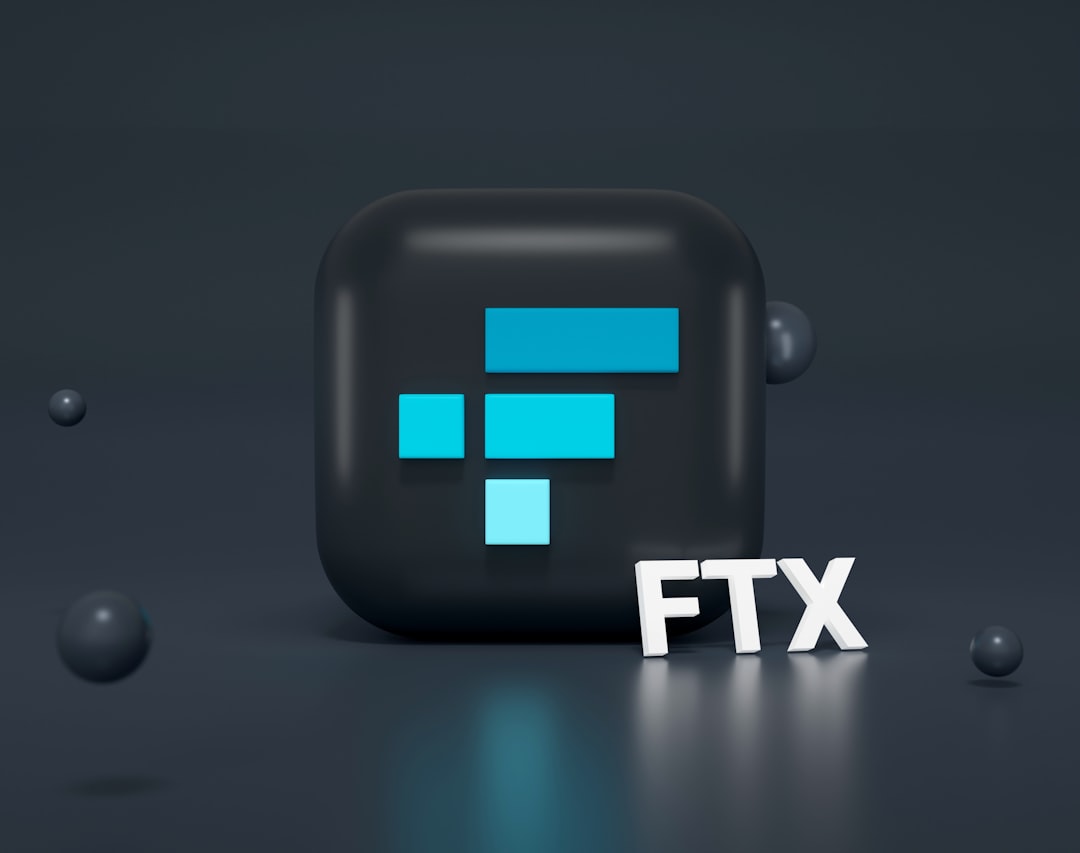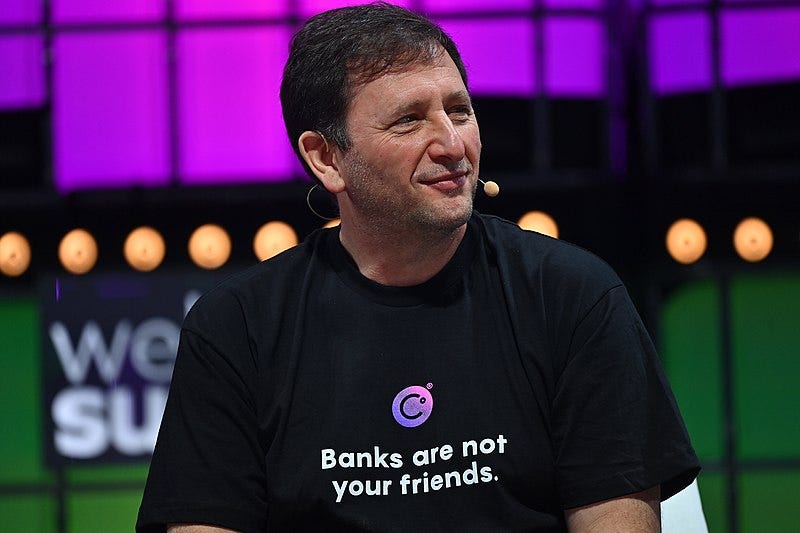Is This How Crypto Gets Privacy? 🕵️♀️
Weekly News Recap: ⚖️ SBF's legal maze deepens, 💼 Salame's guilty plea, 🖥️ Coinbase's network glitch, 💸 Stake.com's exploit, and more!
On Tuesday, a noteworthy paper was released by Ethereum’s cofounder Vitalik Buterin along with a team of four other authors, introducing a smart contract protocol known as privacy pools.
This system is devised to allow crypto enthusiasts to align their investments with lawful activities, distinguishing them from transactions linked to unlawful undertakings like hacking or money laundering operations. This newly proposed protocol aims to rectify one of the flaws of the coin mixer Tornado Cash, which previously encountered sanctions from the U.S. government.
In this conversation, we are joined by Chainalysis' chief scientist Jacob Illum, one of the co-authors of the paper.
Illum sheds light on the intricate workings of privacy pools, the technical foundation supporting this concept, and its practical implementation. He delves into the potential roles various organizations might play in facilitating the smooth operation of these pools, addressing the burgeoning concerns and criticisms surrounding this innovative initiative. Illum, who strongly believes that "everybody should have a right to use the blockchain in the way that they want,” is steadfast in his mission to foster a more inclusive approach to blockchain use. “My ultimate goal is wider adoption," he said.
Weekly News Recap
FTX's Ryan Salame Pleads Guilty
In a recent development in the FTX case, the exchange’s former co-CEO Ryan Salame has pleaded guilty to federal charges, including conspiracy to make unlawful political contributions and defraud the Federal Election Commission (FEC), as well as operating an unlicensed money transmitting business, as confirmed by U.S. Attorney Damian Williams. This plea, recorded in the Southern District of New York, comes with an obligation for Salame to forfeit over $1.5 billion, with a hearing scheduled for March 6.
Salame, who managed political donations at FTX, is the latest former executive at the exchange to admit to criminal conduct, joining Nishad Singh, Caroline Ellison, and Gary Wang, who are all expected to testify. These developments are part of a larger case involving FTX's founder, Sam Bankman-Fried, who is facing multiple charges but has pleaded not guilty.

Bankman-Fried Faces Courtroom Battle Amid Controversial Ad Campaign
As the legal pressures mount on Sam Bankman-Fried the spotlight this week is on his lawyers' increasingly fervent requests for him to be temporarily released from jail—as they argue—to be able to adequately prepare for his imminent October trial. Despite their client having already been granted access to an air-gapped laptop for extended hours at the Metropolitan Detention Center, Bankman-Fried's defense team contends that the current setup falls short of allowing a meaningful opportunity to build a robust defense, citing unreliable internet and insufficient battery life of the laptop provided.
Simultaneously, the courtroom is buzzing with debates over the admissibility of evidence concerning FTX's bankruptcy and a controversial Super Bowl ad featuring Seinfeld creator and perennial Luddite Larry David. The prosecution insists that the evidence is vital to portraying the complete narrative of Bankman-Fried's alleged crimes, including the alleged misappropriation of customer funds.
In a related development, the U.S. District Court for the Southern District of New York sanctioned a share repurchase agreement on August 28, allowing regulated securities trading app Robinhood to buy back some of its own stock worth an estimated $605 million from Bankman-Fried, according to an SEC filing from last month reported by CoinDesk late last week.
As FTX's bankruptcy hearing nears, recent Solana wallet activities have ignited fears of a potential token dump, with around $10 million in tokens associated with an FTX wallet already moved through the Wormhole bridge. Meanwhile, filings show what many might consider extravagant corporate expenditures, including a $2.5 million yacht for former co-CEO Samuel Trabucco, among other internal cash transfers to executives.
Celsius Cofounder Faces Frozen Assets
The U.S. Department of Justice (DOJ) has intensified its case against former Celsius CEO, Alex Mashinsky, with a federal judge approving a restraining order that freezes his bank accounts and real estate assets, including a residential home in Texas. This move comes as part of an ongoing criminal case where Mashinsky is facing charges of fraud and market manipulation, to which he has pleaded not guilty.
U.S. Attorney Damian Williams emphasized the necessity of the asset freeze to prevent interference from third parties before the relevant institutions could be notified. The order includes accounts at several financial institutions, including Goldman Sachs, Merrill Lynch, and SoFi Bank, mandating the immediate cessation of all transfers from the affected accounts.

Also this week, lawyers representing the Celsius cryptocurrency exchange filed a complaint against private lending platform EquitiesFirst, seeking to recover assets amounting to approximately $439 million in cash and Bitcoin, which they claim they’ve been owed since July 2022. The filing, which also names EquitiesFirst CEO Alexander Christy as a defendant, stems from unreturned collateral from loans initiated in 2019.
Genesis Takes Legal Action Against Parent Company DCG
Bankrupt crypto lender Genesis is suing its parent company, Digital Currency Group (DCG), and its international affiliate, DCG International Investments (DCIG), seeking repayment of loans amounting to $600 million. The lawsuit alleges that DCIG failed to fully repay a loan converted to a fixed term due in May 2023, with an outstanding balance of around $116 million. Additionally, Genesis claims DCG attempted to convert four loans worth $500 million into open loans that don’t typically have an end date, a move Genesis rejected.
In a related note, Genesis Global Trading is set to voluntarily wind down its US-based spot crypto trading operations later this month, citing “business reasons” in a statement sent to Unchained. The New York subsidiary, holding a BitLicense and registered with the SEC and FINRA, plans to halt its over-the-counter trading services by September 18, with all open accounts to be closed by the end of the month. This move follows the trend of other market makers like GSR, Wintermute, and Jump Crypto reducing their trading activities on US platforms amidst increasing regulatory scrutiny. Despite the closure, the company's international subsidiary, GGC International Limited, will continue its spot and derivative trading services.
In related news, federal officials, including FBI agents and SEC staff, met with Gemini cofounder Cameron Winklevoss to discuss his fraud allegations against Digital Currency Group (DCG) CEO Barry Silbert, according to a Bloomberg report. Despite Silbert's denials, an "ongoing review" into DCG and its subsidiary Genesis Global Capital's financials is being conducted. Silbert has not been charged with any wrongdoing, as per a DCG spokesperson.
MakerDAO Cofounder Eyes Solana Fork for New Blockchain
MakerDAO cofounder Rune Christensen has proposed the creation of a new standalone blockchain, dubbed "NewChain,” as part of the MakerDAO network, utilizing a fork of the Solana blockchain as its foundation. Christensen highlighted Solana's technical quality, resilience demonstrated during the FTX collapse, and the functionality of its existing forks as the primary reasons for considering it as the "most promising codebase" for NewChain.
Despite the seemingly substantial task of building and maintaining a new chain, Christensen believes the limited work of copying an existing open-source project is worth the added speed.
The proposal has received mixed reactions from the crypto community, with some questioning the move away from an Ethereum Virtual Machine-based rollup, while others, unsurprisingly including Solana founder Anatoly Yakovenko, welcoming the initiative.
Grayscale Advocates for Spot Bitcoin ETF
The latest in part of the fervent push to establish a spot Bitcoin ETF, cryptocurrency asset manager Grayscale is urging the SEC to reconsider its stance on the Grayscale Bitcoin Trust (GBTC), currently valued at about $13.5 billion. Following a recent court victory where a judge overturned the SEC's rejection of Grayscale's Bitcoin ETF application, the firm appears keen to discuss the potential conversion of GBTC into a spot Bitcoin ETF, asserting that there's no valid reason to differentiate GBTC from other products investing in Bitcoin futures contracts. This development comes as the SEC postponed decisions on six other spot Bitcoin ETF applications, setting a new deadline in October.

Even as this happened though, the SEC found itself embroiled in another legal tussle, this time with Ripple Labs, its CEO Brad Garlinghouse, and chairman Chris Larsen. The commission is seeking approval to appeal a ruling that found Ripple's XRP sales did not breach securities law. Ripple contends that an appeal would “neither expedite nor terminate” the case's resolution, and that the SEC lacks sufficient grounds to appeal a federal judge's ruling in favor of Ripple's XRP sales.
Ark Invest and 21Shares Step Up for Spot Ether ETF
Global asset manager Ark Invest and crypto exchange traded product specialist 21Shares have filed an application with the SEC to launch a spot ether ETF, named the ARK 21Shares Ethereum ETF, aiming to offer investors direct exposure to ether through Cboe’s equities exchange. The move is part of ongoing industry efforts to secure the first spot crypto fund approval from the SEC.
The proposed ETF promises a convenient and supposedly cost-effective way for institutions that are prevented from owning ether to to gain exposure through a security tied directly to the price. Also, Ark’s former director of research, Brett Winton, who was last year given the ambiguous title, chief futurist, criticized the U.S. government's approach to bitcoin in a social media post, arguing that efforts to undermine the cryptocurrency could potentially harm the country's long-term strategic interests.

Coinbase's Base Network Suffers First Major Outage
Coinbase's Ethereum layer-2 network, Base, experienced its first significant outage since its launch, halting block production for approximately 45 minutes on Tuesday. The disruption was attributed to a necessary update to the internal infrastructure, but raised concerns about the reliability of layer-2 networks.
Pointing to what appears to be some hypocrisy in the way users and the media talk about certain aspects of crypto, the head of strategy at the Solana Foundation, Austin Federa, said in a social media post: “It’s only an outage if it comes from the Solana region of San Diego County, otherwise it’s just a sparkling stall in block production.” In other words, when Solana goes down people freak out. When a Coinbase product does, it's just because it’s an Ethereum layer two solution. The Coinbase team has implemented a fix and is closely monitoring the network to prevent further issues, ensuring users that no funds were jeopardized during the outage. Of course, either way you look at it, the idea that any organization is responsible for either of these platforms makes it more difficult to talk about them being decentralized at all.
Visa Collaborates With Solana and USDC
On Tuesday, payment giant Visa added Solana to the blockchains that can be used to mint USD Coin (USDC) stablecoins, aiming to enhance the speed and efficiency of cross-border settlements, according to a statement. In spite of USDC losing market share to stablecoin tether, Visa is positioning the development as a significant step in bridging traditional finance with Web3 via relationships Visa has with merchant payment processors Worldpay and Nuvei. "This opens the door to exploring future enhancements such as 24/7/365 settlement availability and real-time or multiple daily settlements, all of which can help to accelerate cross-border commerce," said Nabil Manji, Worldpay's head of crypto and Web3 in a statement. Circle CEO Jeremy Allaire echoed this sentiment, highlighting the potential of USDC to "facilitate secure, reliable payments."

In related news, Circle extended USDC deployment to Layer 2 networks OP Mainnet and Base, potentially reducing fees compared to the Ethereum mainnet.
Crypto Casino Stake Recovers After $41 Million Security Breach
In a significant security breach, the crypto betting platform Stake.com was targeted in a hack that saw over $40 million siphoned off from its ETH and Binance Smart Chain (BSC) hot wallets.
Within hours of the breach, the Cyprus-based gambling platform responded, attempting to reassure users their funds were safe and resuming services. Blockchain security firms and on-chain analysts estimated the total loss hovering around $41.3 million.
Notably, the FBI attributed the $41 million theft to the North Korea-linked Lazarus Group, noting their involvement in other significant international crypto heists.
If You Like What You Read:
👍 follow Laura on Twitter, Facebook, Instagram, TikTok, Mastodon and/or LinkedIn
🎧 subscribe to Unchained on YouTube, Apple Podcasts, Spotify, Google Podcasts, Pandora or wherever you get your podcasts
and/or 📚buy my book, The Cryptopians: Idealism, Greed, Lies, and the Making of the First Big Cryptocurrency Craze







